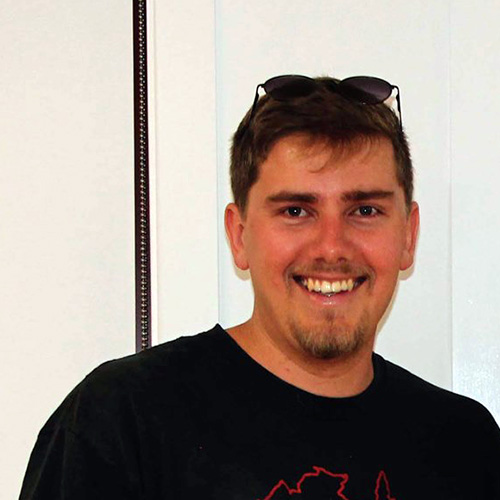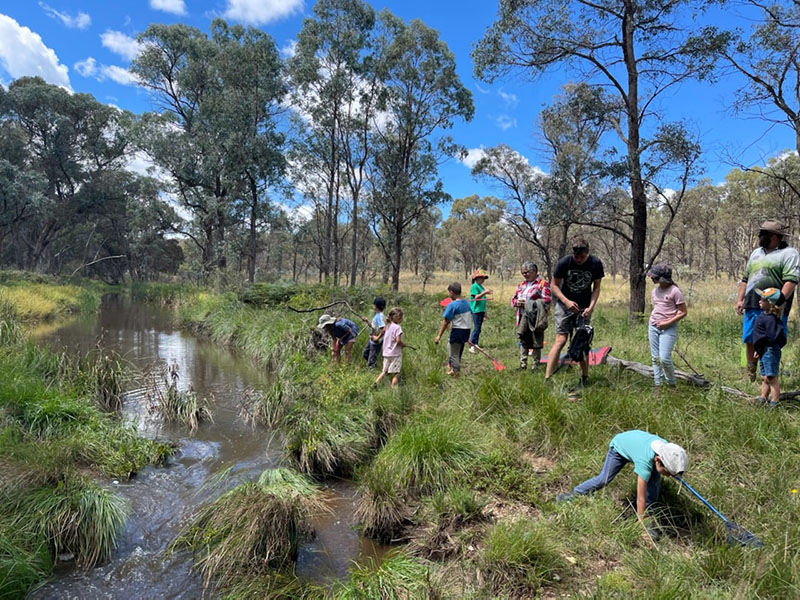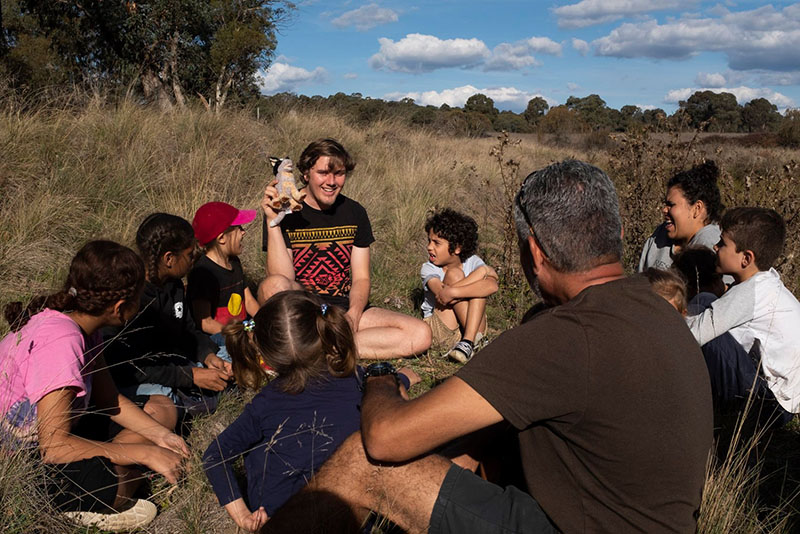In the New England High country, on a 240-hectare bush block peppered with stringybarks and surveyed by large granite boulders, a whispering creek is welcoming home a group of Anaiwan people. After an absence of many decades, they are once again free to occupy the lands of their ancestors.
It follows a successful crowdfunding campaign earlier this year by local Anaiwan language revival organisation Nēwara Aboriginal Corporation, which saw more than $350,000 raised in under six weeks. The campaign’s success meant they were able to buy back a sizable patch of country north-west of Armidale.
Driving force behind the project, UNE alumnus Callum Clayton-Dixon, says it’s not simply an act of self-determination, but a vital step in reviving Anaiwan language and culture.
 Callum Clayton-Dixon
Callum Clayton-Dixon
“I don’t think it has sunk in for a lot of us yet that the block is actually ours,” he says. “It’s the first land of this size owned outright by Anaiwan people, which is sad but also very exciting.”
Callum moved to the Armidale district, the homelands of his grandfather Norman, in 2015 and began a Masters of Applied Linguistics at UNE a year later, with the intention of working on revitalizing his ancestral language. His area of research then expanded into the history of Aboriginal resistance and resilience on the tablelands during the early colonial period, which he delved into in his Masters of Philosophy, and formed the basis of the book Surviving New England.
Now Callum’s a research fellow and PhD candidate at UTS, where he’s continuing his work on an Anaiwan language dictionary and grammar. He’s also heavily involved with Nēwara, working alongside the corporation’s first dedicated Anaiwan language worker, Larissa Ahoy, to develop teaching and learning resources and train local Aboriginal educators to introduce language into schools on Anaiwan country.
The idea of purchasing the land grew out of frustrations at the delays, red tape and expenses associated with the native title process, as well as the division it can cause within Indigenous communities. “The outcome of claims in 80% of Native Title determinations in New South Wales is that the claimant groups’ native title rights do not exist,” Callum says. “That’s pretty depressing. Successful Native Title claims can take decades, and often deliver very little. What’s more, there’s a backlog of more than 30,000 Land Rights claims in NSW yet to be resolved.”
So Nēwara decided to harness the “growing amount of goodwill and willingness among non-Aboriginal people to support Aboriginal communities in substantial and not just symbolic ways”, launching their crowdfunding campaign to buy back Anaiwan land in the run up to January 26. More than 1,000 people donated on January 26 alone.
The non-profit Nēwara Aboriginal Corporation, originally established as the Anaiwan Language Revival Program by members of the Armidale Aboriginal community in 2016, eventually received more than 3,000 donations, ranging in size from $5 to $30,000. The campaign attracted national and international attention, and is the third such crowdfunded Aboriginal land buy-back of its kind in Australian history.
“This option has delivered us land justice in a secure, efficient, and effective way,”
“This option has delivered us land justice in a secure, efficient, and effective way,” Callum says. “It will allow people to get back on country, to restore connections and heal, and it allows us to bring non-Aboriginal people in and relate with them on our terms. We no longer have to feel like visitors on our own country. This land is ours.”
 Callum says reclaiming land is “enormously important” to reclaiming knowledge and language. “Language doesn’t come from our people, it comes from our country,” he says. “We now have this mostly uncleared bushland, where we can practice culture, speak our language, sing our songs, dance our dances and tell our stories on the land where it belongs.”
Callum says reclaiming land is “enormously important” to reclaiming knowledge and language. “Language doesn’t come from our people, it comes from our country,” he says. “We now have this mostly uncleared bushland, where we can practice culture, speak our language, sing our songs, dance our dances and tell our stories on the land where it belongs.”
And it’s a model that may be embraced by other Aboriginal groups across the country. “We’ve already had calls from a few other mobs who want to do the same thing, asking for advice,” Callum says. “Many donors saw our campaign as a means of paying reparations for the injustices committed against Aboriginal people in the past, and they recognized that we should have the right to self-determination over our country. We’ve shown that you can bypass government and legislation to achieve a form of land justice.”
Since holding the first Anaiwan community language workshops, the corporation has opened an Anaiwan Language and Research Hub and started teaching Anaiwan language in local schools. It’s now planning sessions that reintroduce language on the new block, as well as traditional land management practices, cultural camps, men’s and women’s gatherings, and possibly cultural tours.
“We’ve been taking elders and community members out there and it’s been really special to see them becoming reacquainted with that patch of country,” Callum says. “The possibilities now are endless.”
“The possibilities now are endless.”


